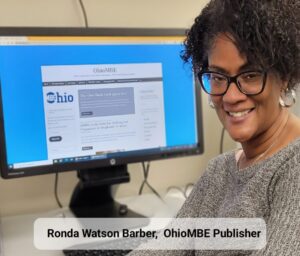By Ronda Watson Barber
OhioMBE Publisher
A recent Facebook discussion on about Columbus City Schools’ Local Economically Disadvantaged Enterprise (LEDE) program sparked some honest — and necessary — conversation.
One commenter, a contractor, argued that it’s “not fair to blame the school board or Ms. Chapman,” suggesting the problem lies in decades-old financial systems that keep minority contractors from competing. He noted that many vendors lack access to the bonding, cash flow, and credit required to bid on large projects. “Instead of crying and complaining,” he wrote, “I’m an advocate for minorities creating strategic partnerships so we can compete. But unity is our weakness.”
It’s a valid point — systemic barriers are real. However, accountability still matters.
The Columbus City Schools Board of Education and its administration control how and where taxpayer dollars are spent. Every purchase and contract is reviewed and approved by them. If a majority-Black school district consistently awards millions of dollars in contracts without meaningful participation from Black vendors, then leadership must answer for that.
The LEDE program was created to provide economic opportunities for underserved businesses — not to serve as a talking point. Yet, despite the program’s existence, too many Black and minority-owned firms remain shut out. With a $1 billion annual budget, the district has both a moral and financial obligation to ensure inclusion across all areas of procurement — not just construction. Columbus City Schools purchases everything from technology to office supplies, food services, maintenance, and professional consulting. Those contracts represent real dollars that should circulate within the community that funds the district.
Black taxpayers are supporting a system that too often redirects wealth to the suburbs and majority-owned firms. That’s not inclusion — that’s taxation without participation.
The LEDE initiative was designed to correct historic inequities, but policy without oversight is just paperwork. A true commitment to diversity requires transparency, measurable goals, and proactive engagement with vendors who have been excluded for generations.
At OhioMBE, we’ve long advocated for public agencies to prioritize Black- and minority-owned businesses. This isn’t about handouts — it’s about fairness. It’s about ensuring that the people who pay into the system also benefit from it.
Collaboration among Black contractors is essential, but so is leadership that understands its responsibility to dismantle exclusionary practices — not simply maintain them. The next generation of business owners is watching to see who truly stands for equity in economic opportunity.
just my thoughts…rwbDiscover more from OhioMBE
Subscribe to get the latest posts sent to your email.
